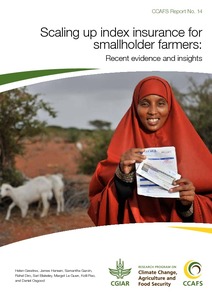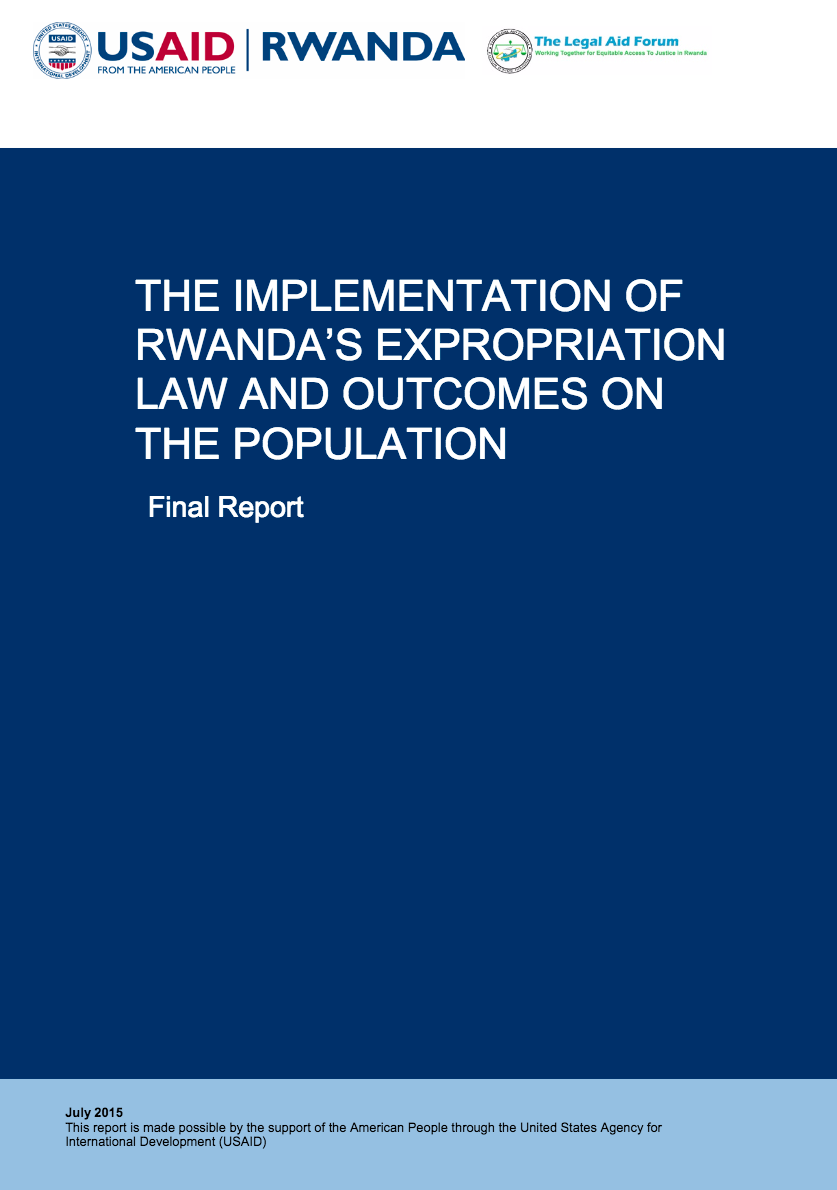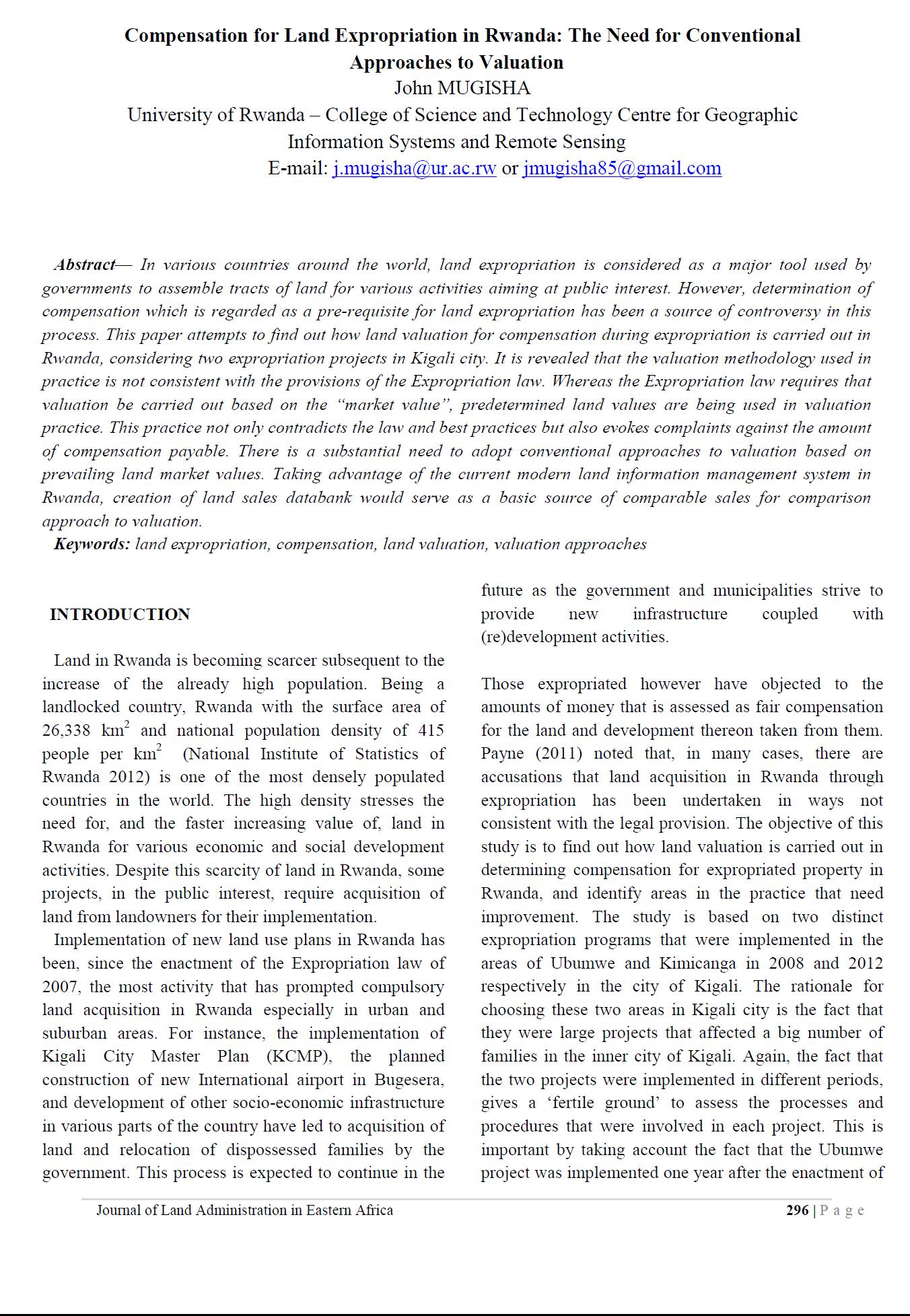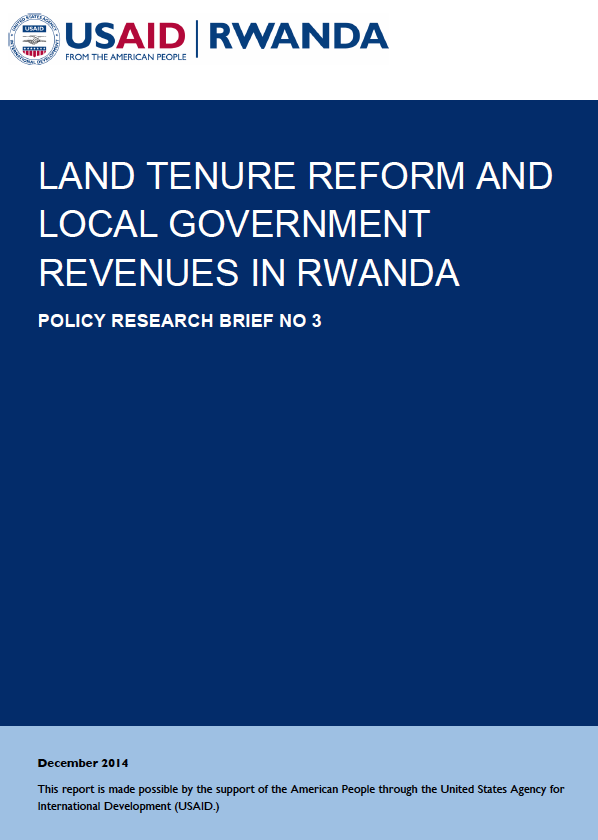This report explores evidence and insights from five case studies that have made significant recent progress in addressing the challenge of insuring poor smallholder farmers and pastoralists in the developing world. In India, national index insurance programmes have reached over 30 million…
This Policy Brief summarizes the main findings and recommendations of qualitative and quantative research on implementation and outcomes of the 2007 Expropriation Law in Rwanda. Rwanda is developing at a remarkably rapid pace, and with that development has come a multitude of corresponding…
This Policy Brief summarizes the main findings and recommendations of qualitative and quantative research on implementation and outcomes of the 2007 Expropriation Law in Rwanda. Rwanda is developing at a remarkably rapid pace, and with that development has come a multitude of corresponding…
These theories of change were developed to help the HarvestPlus program deliver on its planned outcomes and impacts. HarvestPlus expects to contribute to the reduction in micronutrient deficiency among women and children in rural areas of developing countries through the breeding and…
Over the last decade, the Government of Rwanda (GoR) has introduced several land reforms through formulation and enactment of enabling legal framework, establishment of land administration institutions and implementation of national land tenure regularization. Further, the Land Act of 2013…
In various countries around the world, land expropriation is considered as a major tool used by governments to assemble tracts of land for various activities aiming at public interest. However, determination of compensation which is regarded as a pre-requisite for land expropriation has been a…
Professor Kjell Havnevik is retiring from the Nordic Africa Institute (NAI) in 2015. For four decades, he has carried out research, taught and supervised students as well as participated in policy debates on different aspects of agriculture, the environment and African and international…
Soil organic carbon (SOC) constitutes a large pool within the global carbon cycle. Land use change significantly drives SOC stock variation. In tropical central and eastern Africa, how changes in land use and land cover impact on soil C stocks remains unclear. Variability in the existing data is…
The Rwandan government's ongoing reconfiguration of the agricultural sector seeks to facilitate increased penetration of smallholder farming systems by domestic and international capital, which may include some land acquisition (‘land grabbing’) as well as contract farming arrangements.…
Land degradation is increasingly recognised as global challenge and is even pushed for as candidate for a (post-2015) Sustainable Development Goal (SDG). The ‘quality of soil’ has been linked to the emergence of conflict, inter alia since it aggravates food and water scarcity. It is an…
The Land Use Consolidation Act (LUC) was introduced in 2008 and is an important
component of agricultural policy in Rwanda. As part of the Government of Rwanda’s
broader Crop Intensification Program (CIP), LUC entails participating farmers
consolidating aspects of their…
This policy research brief on land tenure reform and government revenue aims primarily to examine the effects of land tenure reforms on land-based revenue and to provide policy recommendations that would build on existing efforts developed to ease the process of paying and collecting various…









